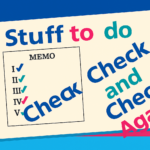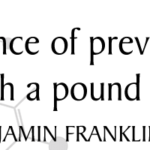Seidman Law Group will be posting a series of pieces on issues that are commonly overlooked as boilerplate provisions. The first topic discusses the scope of exposure for contracting parties.
Scope of exposure is a fancy term for allocation of risk: what are the possible damages awards if a contract is breached or becomes impossible to perform? Most businesspeople understand limitation of liability provisions on a general level but often do not appreciate just how great their potential liability may be. Likewise, businesspeople think they can recover lost profits and punitive damages only to be told they were never recoverable in the contract.
Limitation of Liability Provisions Take Different Forms
The most common form limits the damages to a particular amount. In service contracts, this amount is typically either the total value of the contract or the amount already paid for services rendered. Manufacturing contracts are similar, with “goods” simply replacing “services” in these terms. Parties also use Liquidated Damages provisions to serve as the estimated damage that would result from a breach.
Other limitation of liability provisions waive the ability to recover certain types of damages other than the damages that are directly caused by the contract breach:
Punitive Damages are never recoverable under contract law yet many attorneys fail to advise their clients of this fact (A) at the outset of contract drafting or (B) at the first meeting to discuss litigation strategy as a plaintiff or defendant. Liquidated damages clauses may not seek punitive damages.
Businesspeople are rarely advised about the definition of Consequential Damages or Special Damages. These damages that are not a direct result of a breach itself but are instead consequences of that incident. Manufacturers and service providers are usually adamant that they are waived because they do not want to run the risk of being liable for lost profits and other damage incurred by their clients.
Clients and customers should fight hard to recover Incidental Damages, which are costs that were not expected in the normal execution of the contract but arose due to the breach of the contract. The most commonly incurred incidental damages are inspections of goods, return of goods, commissions that are due, and storage of defective items until retrieval.
Other issues such as limiting the types of legal claims available for recovery that may be sought will not be discussed in this post.
Who May Be Held Liable–Allocation of Risk Between the Parties
The differences between provisions that require (A) duty to defend, (B) duty to indemnify, and/or (C) duty to hold harmless must be understood to appreciate whether a party is liable to another party. The duty to defend means that once the third party claim is sent to the other contracting party, the other contracting party is responsible for directly paying for attorneys fees and any damages. On the other hand, the duty to indemnify requires the indemnifying party to reimburse the indemnitee for the attorneys fees and damages it incurred. The duty to hold harmless means that the indemnitee will not be held liable for any actions undertaken or risks assumed by the indemnifying party’s actions.
Who May Be Held Liable–Allocation of Risk to Insurers
One question I am often asked is “how much insurance should I have?” My answer is the same every time: ask your insurance broker. Likewise, I always recommend business owners ask their insurance brokers about waivers of subrogation, adding additional insureds, and deductions/retentions. A good insurance broker will almost always know more than the attorney working on the matter.
Experienced contracts attorneys should be able to handle and explain these issues to ensure their clients fully understand their scope of exposure in their current and future contracts.
David Seidman is the principal and founder of Seidman Law Group, LLC. He serves as outside general counsel for companies, which requires him to consider a diverse range of corporate, dispute resolution and avoidance, contract drafting and negotiation, and other issues. In particular, he has a significant amount of experience in hospitality law by representing third party management companies, owners, and developers.
He can be reached at david@seidmanlawgroup.com or 312-399-7390.
This blog post is not legal advice. Please consult an experienced attorney to assist with your legal issues.














